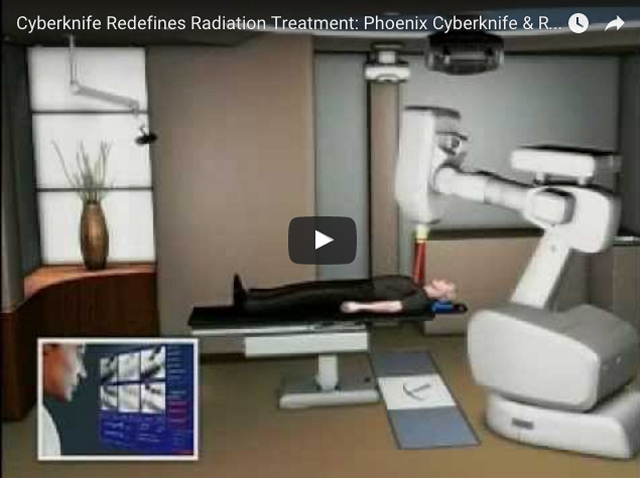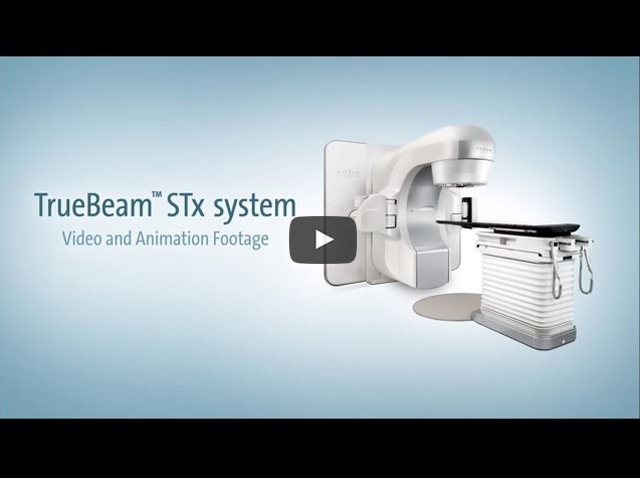ESOPHAGEAL & STOMACH CANCER
Facts About Esophageal and Stomach Cancer
The American Cancer Society estimated that 16,980 new cases of esophageal cancer and 24,590 new cases of stomach cancer would be diagnosed in the United States in 2015.
Because risk factors vary case-by-case according to age, gender, family history, diet, activity level, alcohol consumption, and tobacco use, it is important to talk to your doctor about your personal risk factors in treating an esophageal or stomach cancer diagnosis.
Esophageal and stomach cancers are not regularly screened like some other cancers are; however, for patients with a history of Barrett’s esophagus, esophageal and stomach cancer is generally screened with an endoscopic exam and a biopsy.
Treating Esophagael and Stomach Cancer
Radiation therapy is often used in conjunction with surgery and chemotherapy to treat esophageal and stomach cancers.
- Often, the primary treatment for stomach cancer, also called gastric cancer, is surgery. The need for surgery varies based on the extent and the stage of the disease at the time of diagnosis. Radiation and chemotherapy are often used after surgery for gastric cancer, depending on the location and stage of your cancer.
- Esophageal cancer can be treated either by surgery or by combining radiation with chemotherapy. Sometimes, radiation and/or chemotherapy is given before surgery for esophageal cancer.
- Radiation may also be used, with or without chemotherapy, to relieve pain in more advanced disease.
External Radiation Therapy
External beam radiation therapy involves a series of daily outpatient treatments that accurately deliver radiation to the area needing therapy. The radiation beam usually comes from a machine called a linear accelerator.
- Before beginning treatment, you will be scheduled for a simulation to map out the area to be treated. This will involve having X-rays and/or a CT scan. Landmarks placed on your skin (often tiny tattoos) allow the radiation therapists delivering your treatments to precisely position you each day.
- To minimize side effects, the treatments are given gradually over about five to six weeks, five days a week (Monday through Friday). This allows your doctors to get enough radiation into your body to kill the tumor cells while giving healthy cells time to recover each day.
- Technical terms that may be mentioned for cancer treatments include three dimensional conformal radiation therapy (3-D CRT), intensity modulated radiation therapy (IMRT) orimage guided radiation therapy (IGRT). Your radiation oncologist can provide more information about these different techniques.
Understanding Radiation Therapy
- Radiation therapy, sometimes called radiotherapy, is the careful use of radiation to treat cancer safely and effectively.
- Cancer doctors called radiation oncologists use radiation therapy to cure cancer, control cancer growth, or relieve symptoms such as pain or bleeding.
- Radiation therapy works within cancer cells by damaging their ability to multiply.
- When these cells die, the body naturally eliminates them.
- Healthy cells are also affected by radiation, but they can repair themselves in ways cancer cells cannot.
Possible Side Effects
Side effects of radiation therapy are limited to the area being treated. Side effects are not the same for all patients. Talk with your doctor and treatment team about any new symptoms or side effects you may experience during treatment.
- It is likely you will receive chemotherapy in addition to radiation therapy. The side effects from the chemotherapy will depend on the drugs being prescribed and how often you are to receive them. Ask your medical oncologist about chemotherapy side effects you may experience.
- Treatment side effects can often be controlled with medications or changes in your diet. Tell your doctor or nurse if you experience any of them, so they can assist you with the symptoms you are experiencing.
Caring For Yourself During Treatment
It is important to care for yourself as well as possible during radiation therapy because the normal parts of your body that are near the tumor are also receiving some radiation, although not as much as the cancer. These normal parts of your body need time and support to heal. A balanced diet, mild amount of physical activity and taking time to rest are all important parts of your cancer treatment. Follow your doctor’s orders and, if you are unsure of anything, ask your nurse or doctor any questions you may have about treatment. Make sure to tell your radiation oncologist about any vitamins or dietary supplements that you are currently taking to make sure they are safe to take during radiation therapy.
During and even after radiation therapy is over, you will need to take special care of your skin. Stay out of excessive sun, avoid hot or cold packs, and do not use lotions or ointments without checking with your doctor or nurse first. You should also be sure to clean the skin over the areas receiving radiation therapy with warm water and mild soap.
Completing treatment and recovery can be challenging. Seek out help from support groups and friends ahead of time. If you have a support network in place before and during treatment, it will be easier to get through side effects since people you can count on will be around to help you. If you need additional support, let your doctor and nurse know.
Patient Education
Cyberknife Cancer Treatment
TrueBeam STx - Animation
Facts About Esophageal and Stomach Cancer
The American Cancer Society estimated that 16,980 new cases of esophageal cancer and 24,590 new cases of stomach cancer would be diagnosed in the United States in 2015.
Because risk factors vary case-by-case according to age, gender, family history, diet, activity level, alcohol consumption, and tobacco use, it is important to talk to your doctor about your personal risk factors in treating an esophageal or stomach cancer diagnosis.
Esophageal and stomach cancers are not regularly screened like some other cancers are; however, for patients with a history of Barrett’s esophagus, esophageal and stomach cancer is generally screened with an endoscopic exam and a biopsy.
Treating Esophagael and Stomach Cancer
Radiation therapy is often used in conjunction with surgery and chemotherapy to treat esophageal and stomach cancers.
- Often, the primary treatment for stomach cancer, also called gastric cancer, is surgery. The need for surgery varies based on the extent and the stage of the disease at the time of diagnosis. Radiation and chemotherapy are often used after surgery for gastric cancer, depending on the location and stage of your cancer.
- Esophageal cancer can be treated either by surgery or by combining radiation with chemotherapy. Sometimes, radiation and/or chemotherapy is given before surgery for esophageal cancer.
- Radiation may also be used, with or without chemotherapy, to relieve pain in more advanced disease.
External Radiation Therapy
External beam radiation therapy involves a series of daily outpatient treatments that accurately deliver radiation to the area needing therapy. The radiation beam usually comes from a machine called a linear accelerator.
- Before beginning treatment, you will be scheduled for a simulation to map out the area to be treated. This will involve having X-rays and/or a CT scan. Landmarks placed on your skin (often tiny tattoos) allow the radiation therapists delivering your treatments to precisely position you each day.
- To minimize side effects, the treatments are given gradually over about five to six weeks, five days a week (Monday through Friday). This allows your doctors to get enough radiation into your body to kill the tumor cells while giving healthy cells time to recover each day.
- Technical terms that may be mentioned for cancer treatments include three dimensional conformal radiation therapy (3-D CRT), intensity modulated radiation therapy (IMRT) orimage guided radiation therapy (IGRT). Your radiation oncologist can provide more information about these different techniques.
Understanding Radiation Therapy
- Radiation therapy, sometimes called radiotherapy, is the careful use of radiation to treat cancer safely and effectively.
- Cancer doctors called radiation oncologists use radiation therapy to cure cancer, control cancer growth, or relieve symptoms such as pain or bleeding.
- Radiation therapy works within cancer cells by damaging their ability to multiply.
- When these cells die, the body naturally eliminates them.
- Healthy cells are also affected by radiation, but they can repair themselves in ways cancer cells cannot.
Possible Side Effects
Side effects of radiation therapy are limited to the area being treated. Side effects are not the same for all patients. Talk with your doctor and treatment team about any new symptoms or side effects you may experience during treatment.
- It is likely you will receive chemotherapy in addition to radiation therapy. The side effects from the chemotherapy will depend on the drugs being prescribed and how often you are to receive them. Ask your medical oncologist about chemotherapy side effects you may experience.
- Treatment side effects can often be controlled with medications or changes in your diet. Tell your doctor or nurse if you experience any of them, so they can assist you with the symptoms you are experiencing.
Caring For Yourself During Treatment
It is important to care for yourself as well as possible during radiation therapy because the normal parts of your body that are near the tumor are also receiving some radiation, although not as much as the cancer. These normal parts of your body need time and support to heal. A balanced diet, mild amount of physical activity and taking time to rest are all important parts of your cancer treatment. Follow your doctor’s orders and, if you are unsure of anything, ask your nurse or doctor any questions you may have about treatment. Make sure to tell your radiation oncologist about any vitamins or dietary supplements that you are currently taking to make sure they are safe to take during radiation therapy.
During and even after radiation therapy is over, you will need to take special care of your skin. Stay out of excessive sun, avoid hot or cold packs, and do not use lotions or ointments without checking with your doctor or nurse first. You should also be sure to clean the skin over the areas receiving radiation therapy with warm water and mild soap.
Completing treatment and recovery can be challenging. Seek out help from support groups and friends ahead of time. If you have a support network in place before and during treatment, it will be easier to get through side effects since people you can count on will be around to help you. If you need additional support, let your doctor and nurse know.


